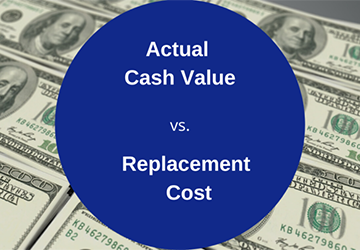4 Tips for Negotiating Better Insurance Deals
Have you ever had to work with an insurance company to resolve an accident or other issue? It can be uncomfortable and stressful, especially during negotiations.
What's the best, most efficient way to negotiate with a company and ensure you get what you deserve? Sadly, this is precisely the dilemma most people face.

But what if we told you there are more effective ways to ensure your success? This blog post will teach you four of the most effective strategies for better insurance deals.
With the information provided in this blog, you can confidently discuss and argue with any insurance company. So what are we waiting for? Let's go!
4 Tips for Negotiating Better Insurance Deals
We will now explain what techniques you can use to ensure a better resolution. Here are four proven methods to help you negotiate like a pro.
1. Gather convincing evidence
Finding and providing reliable evidence is one of the most essential elements of effective negotiation. You must keep a detailed case file, including medical bills, police reports, witness statements, and incident photos.
The more evidence you have, the harder it will be for the company to deny your claim or offer a favourable settlement. Please keep all documents organized and easily accessible during the negotiation process so you can refer to them when needed.
Consider hiring an expert, such as a doctor or accident reconstructionist, who can provide a professional opinion on the incident; this will help convince the insurance company that your claim is legitimate and undeniable.
2. Know your bottom line
Regardless of the negotiation, it would help if you were straightforward about the terms you are willing to abide by; this means you need to clearly understand your claim damages, which include economic losses such as medical bills and lost wages, as well as non-economic losses such as pain and suffering.
First, you set a number and add contingencies to it to account for the possibility of compromise; this represents your final result and is the lowest you can accept.
It helps you focus on the negotiation and prevents you from settling for the lowest offer and being desperate to seal a deal.
3. Don't skip the first offer
Final billing tips are directly related to what the insurance adjuster does. Accepting the first offer is essential, as the second or third is often much better.
The initial offer often stipulates a lower dollar amount, and claims adjusters take advantage of the inexperienced claimant's desperation to accept the deal without asking questions.
As a result, plaintiffs tend to be better protected after a hearing. To increase the potential offer, make a counteroffer independent of the estimated better offer.
4. Be prepared to seek legal help
Another unpleasant situation is that the insurance company is very stubborn. No matter how you negotiate, they cannot find a compromise and can only offer you reasonable terms. It helps if you have legitimate allies in the fight.

An experienced attorney can be an essential argument during the negotiation process. Many professionals work on a bounty system: you pay a lawyer only if the lawyer wins for you in court.
Sometimes, simply threatening the insurance company is enough, and you can have a lawyer appear in court to convince him to increase the payout.
Take action now to improve your insurance experience
Now that you know these four effective techniques for negotiating a higher settlement, it's time to implement them.
However, it is best to recognize these possibilities immediately before filing a claim. The sooner you start improving, the more successful you will be when you perform.
Remember, dealing with insurance agencies can be daunting, but you have more power than you think.





